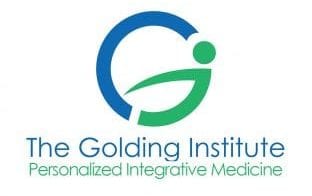It is becoming more noticeable how many people are suffering with sleep issues, including myself. Why is this? Is it stress, is it an aging phenomenon, is it hormonal? Is it a deficiency of some nutrient or are we meant to sleep less as we age? It is so apparent that people suffer with sleep issues that i thought it necessary to write this article.
Why do we need to sleep?
I guess is the first question that comes to mind.
During sleep the following important things happen :
- Immune system recovery
- Brain restoration
- Memory actually occurs during sleep, all night studying does not equate to good memory, you need to sleep to remember!
- Emotional and psychological well-being is really dependant on good sleep
- Healing of the body occurs during sleep
- There is a significant association of sleep disorders with anxiety and depression
Ideally to improve sleep one would suggest a non-addictive safe substance.
The side effects of sleeping tablets include daytime tiredness, forgetfulness, addiction potential, rebound worse sleeping! Medications do not come without side effects, these can be as bad as hallucinations, fatigue, neurological symptoms, libido effects, urinary retention, tremors, blurred vison to name just a few.
How do hormones fit into the whole picture of sleep?
Firstly the hormone melatonin comes to mind. This hormone, secreted from the pineal gland has much more than sleep enhancing effects. The effects beyond sleep include behavioural improvement, less headaches, improvement in symptoms such as tinnitus, cluster headaches, irritable bowel improvement, melatonin also induces less excitation to the brain, it is an indirect glutamate antagonist, and reduces cortisol (the major hormone of stress). Many studies have been done to prove the effectiveness of melatonin.
Other hormones affecting sleep
Progesterone
While estrogen is a common focus of menopause discussions, progesterone has very profound effects on sleep and is somewhat underestimated in it’s profound effects on enhancing sleep. It is a natural hormone that stimulates gaba enhancing sleep and relieving anxiety and actually improves breathing as well as sleep apnoea.
Estrogen
The effect of estrogen on sleep is more complicated than that of progesterone. In animals, estrogen suppresses REM sleep, but in humans it increases REM cycles. Estrogen is involved in norepinephrine and serotonin and acetylcholine metabolism. Estrogen has been shown to decrease sleep latency, decrease the number of awakenings after sleep occurs, increase total sleep time and decrease the number of night time arousals. An improvement related to temperature regulation in the body and flushing in women is obviously a parent. Estrogen improves the quality of sleep in women too. Estrogen may have a direct impact on mood through its central nervous system (CNS) receptors in the modulation of neurotransmitters. It is involved in both 5 HT and NE regulation centrally. Estrogen is also a gaba agonist.
Cortisol
Estrogen also affects sleep via its effect on cortisol. Menopause is associated with higher levels occurring earlier in the sleep period. Stress is a major factor in increasing cortisol levels and affecting sleep.
It is very important to manage stress with exercise, and life-style techniques, the use of minerals and vitamin c are useful. Herbal adaptogens such as rhodiola and ashwaganda are very useful to regulate cortisol levels.
I find a nutrient phosphatidylserine very useful in lowering cortisol, improving memory and improving sleep.
Dhea : this in low doses can help counteract the effects of cortisol as well, cortisol levels I often find stabilizing on dhea
Pregnenelone : This is a very useful hormone to counteract the effects of cortisol and is the “mother hormone” of all steroid hormones.
Testosterone
Testosterone has been less well studied than the other sex hormones in relation to sleep. Testosterone tends to decrease REM sleep in animals, and significant gender differences have been have a minor effect on sleep in humans except testosterone is related to developing or worsening obstructive sleep apnea. I suggest transdermal testosterone to men when required, this improves sleep and does not seem to exacerbate obstructive sleep apnoe. I do monitor haemoglobin levels and prostate markers.
Sleep Hygiene
Some things to consider include:
- Reduce caffeine and nicotine
- Reduce alcohol consumption
- Avoid heavy meals before bedtime
- Regular exercise
- Avoid daytime naps
- Minimize noise, light, and excess temperature.
